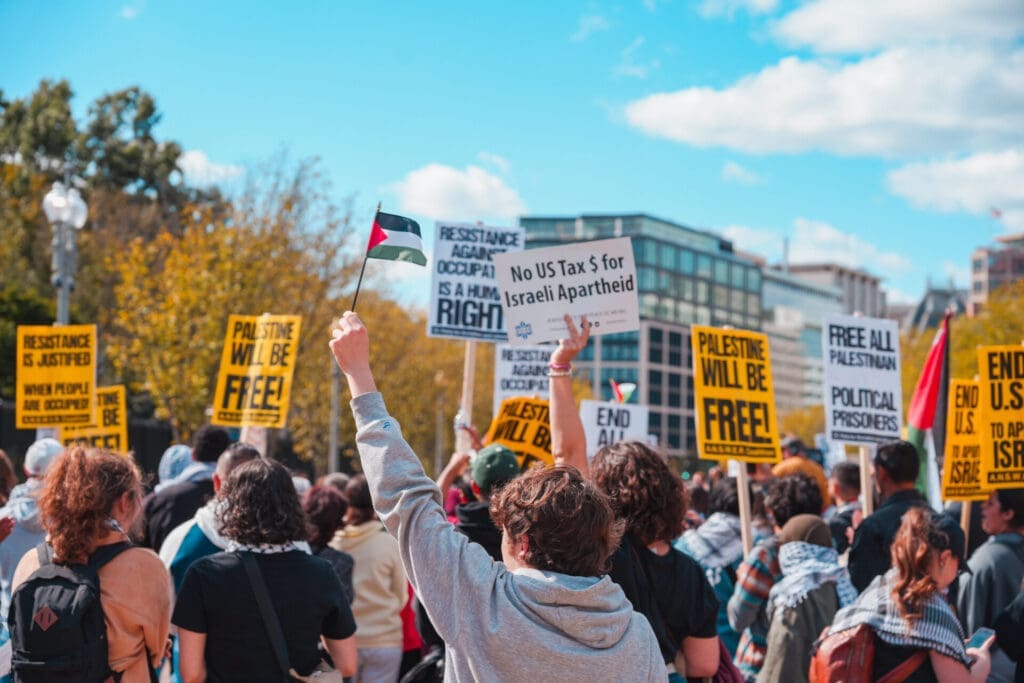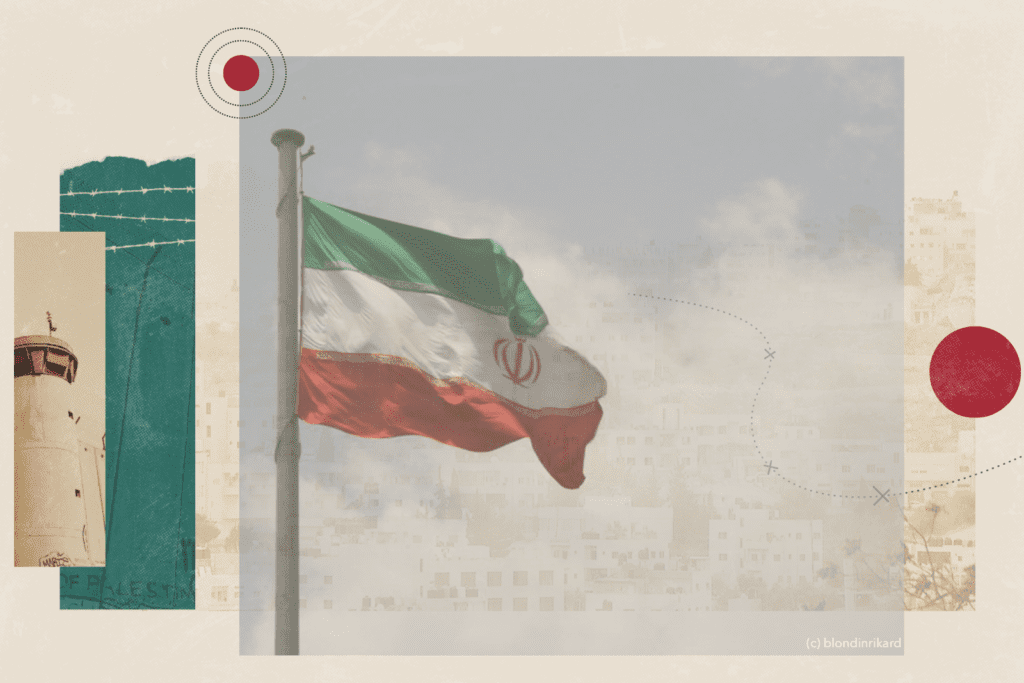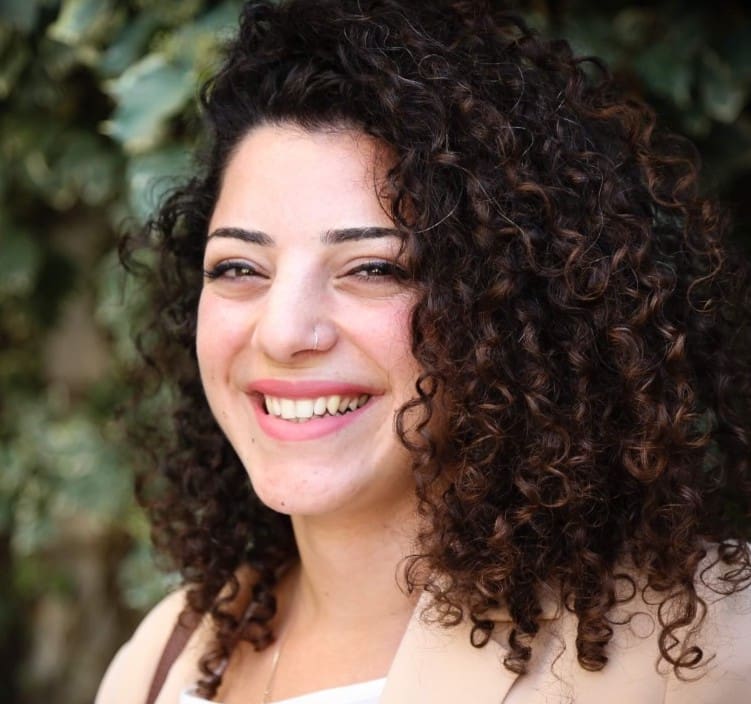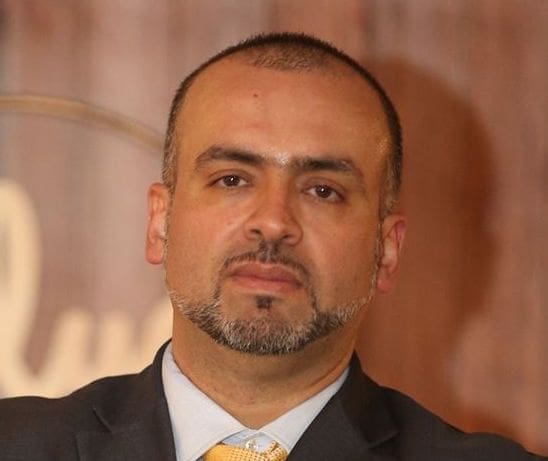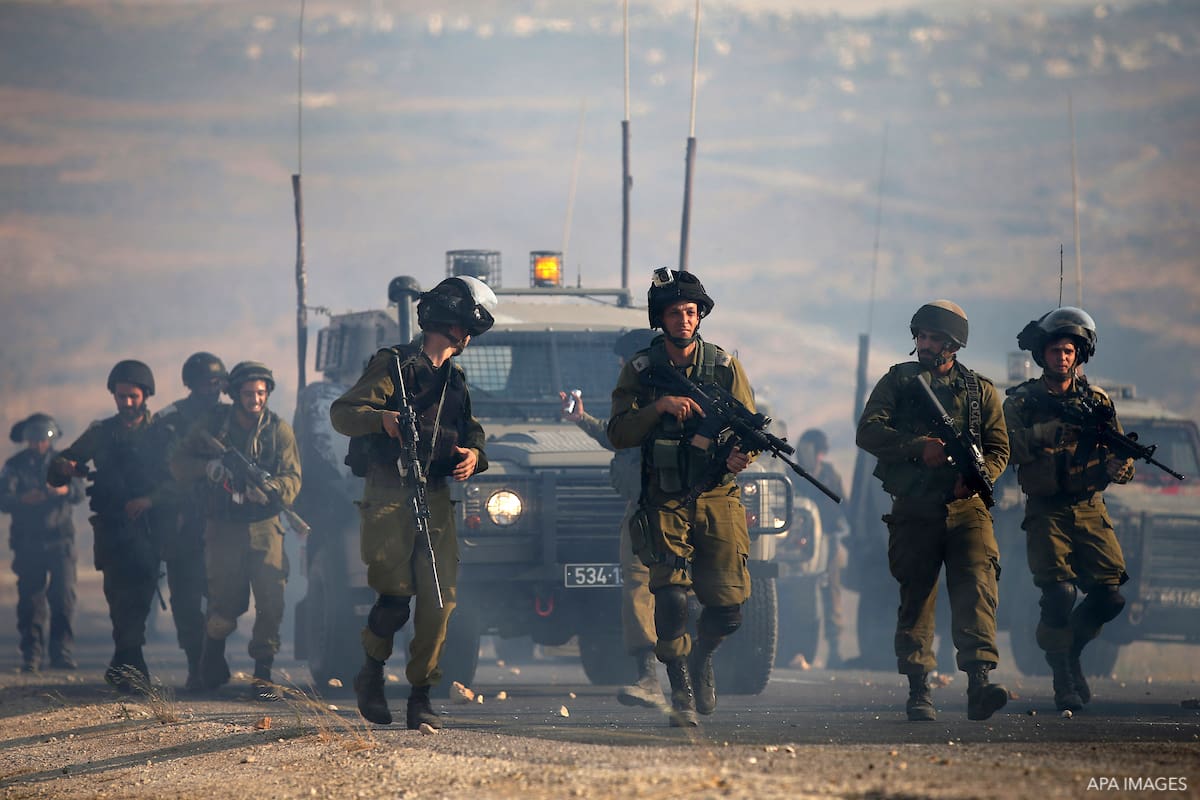
Executive Summary
In the five years since the prosecutor of the International Criminal Court (ICC) opened her preliminary examination into possible war crimes in the occupied Palestinian territories, the Israeli army has killed more than 700 Palestinians and injured tens of thousands, expanded illegal settlements, and continued to deny freedom of movement to Palestinians, amongst many other abuses. Despite these ongoing violations, however, the ICC remains the only independent judicial body that is capable of ending impunity for past crimes and preventing future crimes from being perpetrated.
The ICC is established on the principle of complementarity, which means it is only entitled to exercise jurisdiction when national legal systems fail to do so in line with international standards. Significantly, this includes situations where these systems purport to act but are unwilling and/or unable to conduct genuine proceedings.
There are at least three indicators that demonstrate Israel’s ongoing unwillingness to initiate domestic proceedings against persons alleged to have committed war crimes and crimes against humanity in Palestine. The first is the high number of complaints about military violations in recent years that were closed without a genuine, independent, and impartial investigation. This is only to be expected when the same officials who help draft and approve regulations are also responsible for initiating investigations and prosecutions. The Military Advocate General in Israel maintains three key powers: Legislative (defining the army’s rules of conduct), executive (providing “real time” legal counseling during military operations) and quasi-judicial (deciding on investigations and prosecutions).
Second, when indictments are actually issued for military violations, only low-level soldiers are held to account and the sentences are far from commensurate with the severity of the violations. This judicial practice allows Israel to blame a limited number of “bad apples” for its policies, rather than acknowledging the structural character of the violence that Israel inflicts on the Palestinians. In addition, it also serves to preclude the investigation of policy-level decisions, and shields senior military and civilian officials from liability for potential war crimes and crimes against humanity.
Third, Israel has failed to uphold International Humanitarian Law (IHL) and International Human Rights Law (IHRL) in the West Bank by constructing settlements, confiscating land, and displacing Palestinians. Israel denies that its settlement activities in the West Bank are a war crime, despite the fact that such acts are explicitly prohibited by the Rome Statute. Prime Minister Benjamin Netanyahu has continued to make clear that Israel will continue to act as it sees fit despite the fact that its acts violate the Fourth Geneva Convention of 1949 (to which Israel is a state party) as well as the Rome Statute, to which Israel is a signatory.
These three indicators make clear that war crimes and crimes against humanity will not be prosecuted in Israel at the domestic level. The ICC can use this very reluctance, which has so far played in Israel’s favor, as an opportunity to prosecute: the lack of a single war crimes indictment and the number of civilian deaths that remain un-investigated should be taken in consideration by the ICC in the assessment of complementarity. However, an ICC prosecution may be complicated by the role of the UN Security Council (UNSC). While UN agencies and international organizations can encourage the ICC to open an investigation, Article 16 of the Rome Statute establishes that the UNSC can defer an investigation or prosecution for a renewable period of 12 months. Although the UNSC has not yet used this deferral power, its retention presents a permanent threat to accountability, especially given the position of the United States on the question of Palestine.
This does not mean, however, that the current ICC investigation is a lost cause. Considering Israel’s documented and widespread violations of IHL, the ICC’s Prosecutor should continue its investigation by developing evidence of crimes and identifying individuals to prosecute in credible and effective proceedings, as well as to prevent future crimes. Settlement activities are not subject to any criminal justice inquiry in Israel, and the decision to investigate this category of crimes would present far fewer challenges to the ICC’s Prosecutor. This is a fact that should be widely promoted by the Palestine Liberation Organization (PLO) and by Palestinian civil society.
“[W]hile the ICC prosecutor will not be able to change the past, she may be able to positively influence the future. In opening an investigation and subsequently prosecuting senior Israelis, the ICC will be sending a powerful message that Palestinians, like all other peoples, are worthy of justice, and that redress is not a gift but a right that must be unconditionally fulfilled.” – Nada Kiswanson
Overview
In recent weeks, media reports spoke of secret lists Israel was compiling of military and intelligence officials who might be arrested when they travelled abroad if the International Criminal Court (ICC) decided to investigate war crimes in the occupied Palestinian territory (OPT).1
In fact, in just the five years since the prosecutor of the International Criminal Court (ICC) opened her preliminary examination into possible war crimes in the OPT, the Israeli army has killed more than 700 Palestinians and injured tens of thousands. These deaths and injuries were not isolated incidents, but were part of a broader policy that seeks to suppress Palestinian resistance to the colonization of their land. As a consequence of Israeli land theft, its illegal settlements, and the transfer of its citizens to the OPT, Palestinian families have been divided, faced arbitrary detention, placed under siege, and denied freedom of movement amongst many other abuses. Thus, a strong prima facie case can be made that Israel is guilty of crimes against humanity and war crimes and this perhaps helps to explain why it has been unwilling to enquire further into the complaints and files in its possession.
The ICC is established on the principle of complementarity, which means it is only entitled to exercise jurisdiction when national legal systems fail to do so in line with international standards. Significantly, however, this includes situations where these systems purport to act but are unwilling and/or unable to conduct genuine proceedings. Israel’s ongoing unwillingness to initiate domestic proceedings against persons who are alleged to have committed war crimes and crimes against humanity in Palestine therefore opens up the strong possibility of ICC intervention.
In this policy brief Al-Shabaka Policy Analysts 24398 and 24378 highlight a number of indicators that should lead the Office of the Prosecutor (henceforth referred to as the Office or as the OTP) to draw this conclusion. In particular, the brief focuses on three consistent indicators that are inspired by the legal and policy framework endorsed by the Office in its overall policy paper of 2013 dealing with preliminary examinations. These indicators should therefore be taken into account by the Office when considering Israel’s unwillingness to investigate and prosecute crimes.2 The first indicator is the number of complaints and files that were closed without a genuine, independent and impartial investigation. The second tackles fictional investigations against low-level soldiers that effectively protect the decision-makers from prosecution. The third is Israel’s ongoing unwillingness to respect International Humanitarian Law (IHL) and International Human Rights Law (IHRL). In addition the brief discusses the role of the United Nations Security Council (UNSC) as it relates to the ICC.
Lack of Independence, Impartiality, or Genuine Intent
During Israel’s 2014 military offensive against Gaza, which Israel called Operation Protective Edge, several independent observers including a United Nations (UN) Commission of Inquiry and local and international human rights organizations, documented various unlawful attacks, which included apparent war crimes. Some went further and denounced Israel’s “failure and refusal” to hold accountable “those suspected of committing crimes against Palestinian civilians” by impartially investigating the alleged war crimes.3
During the Israeli offensive more than 1,500 Palestinians civilians were reported to have been killed, hospitals and other civilian infrastructure were damaged and the homes of more than 100,000 were destroyed. The full extent of this destruction may never be known as Israel prevented international human rights investigators from entering the Gaza Strip (as well as the West Bank and Israel). And yet in the aftermath of the 2014 assault, Israeli military investigators only indicted three soldiers. Earlier, in 2011, an International Federation for Human Rights report had denounced Israel’s unwillingness to undertake independent, effective, prompt and impartial investigations into alleged military crimes in the OPT and described this as a systematic denial of justice to victims. And some years later Amnesty International’s found that, in instances where Palestinians had allegedly been unlawfully killed by Israeli security forces (both in Israel and the OPT), Israel had either failed to investigate or had closed ongoing investigations.
Israeli tribunals…become the quintessential example of a legal system that is ‘unwilling or unable’ to investigate and prosecute war crimes Click To TweetIn fact, the files of investigation have been closed for an extensive number of cases and abuses that extend over a lengthy timeframe. In one particularly significant case, Israeli military investigators decided, in August 2018, to close their files on the “Black Friday” killings, during which more than 200 Palestinian civilians in Rafah were killed over a four-day period during the 2014 assault on Gaza. Indeed, between 2001 and 2008, over 600 allegations of ill treatment were referred to the Israel Security Agency’s Inspector of Complaints but not one resulted in a criminal investigation. In addition, based on the Concluding Observations of the UN Committee against Torture “[O]f 550 examinations of torture allegations initiated by the General Security Services (GSS) inspector between 2002 and 2007, only four resulted in disciplinary measures and none in prosecution.”
In February 2019, a commission of inquiry was established by the UN Human Rights Council and tasked with investigating the circumstances around the 2018 Nakba commemoration demonstrations in the Strip.4 After the Commission criticized Israel’s unwillingness to initiate prosecutions, the Israeli government denounced the Commission’s very existence, and claimed this provided further evidence of the Council’s bias against Israel. It then banned members of the three-person panel from visiting Israel or the Strip. The 2013 Office of the Prosecutor’s policy paper on preliminary examinations observes that this type of response is to be expected when the same officials who helped draft and signed off on regulations are also ultimately responsible for deciding whether they should be investigated and prosecuted.
International law experts Valentina Azarova and Sharon Weill also speak of “linkages between the suspected perpetrators and competent authorities responsible for investigation, prosecution and/or adjudication of the crimes.” They point out that the Military Advocate General in Israel “exercises all three powers – legislative (defining the army’s rules of conduct), executive (providing ‘real time’ legal counselling during military operations) and quasi-judicial (deciding on investigations and prosecutions).” This effectively insulates decision-makers from accountability and staves off the threat of an ICC investigation or prosecution. Israeli tribunals in fact become “the quintessential example of a legal system that is “unwilling or unable” to investigate and prosecute war crimes committed under its national jurisdiction.”
Fictional Low-Level Investigations and Protection of Decision-Makers
When violations occur in the OPT it is invariably the case that only low-level soldiers are held to account, and with only a mild reprimand at that. For example, the Israeli soldier whose extrajudicial execution of a wounded Palestinian in Hebron was filmed on camera was convicted of manslaughter in 2018 and given an 18-month prison sentence This was later upheld on appeal but Israel’s military Chief of Staff later reduced it to 14 months. Setting the leniency of the sentence aside, this judgment does not acknowledge the structural or systematic character of the violence that Israel inflicts on the Palestinians. As Thomas Obei Hansen observes in discussing the overall approach of the Office of the Prosecutor:
In some situations, the OTP observed that it is not sufficient that a limited number of direct physical perpetrators were prosecuted where evidence points to systematic crimes and on that basis proceeded to request the Chamber’s authorization of an investigation.
Even when the Military Advocate General Corps conducted an investigation into the 2014 military offensive it focused in particular on what it disingenuously described as “irregular incidents” that had caused around 100 complaints.5 Although 19 criminal investigations were subsequently opened against soldiers suspected of violating the laws of warfare, the scope was limited and appeared to be exclusively focused on low-level perpetrators.
Nada Kiswanson, an Al-Haq representative, pointed out: “In the very few instances that an Israeli low-level soldier has been investigated and prosecuted, the eventual sentence handed down has not been commensurate with the severity of the criminal conduct.” However, the UN Commission of Inquiry report went further, noting that it is not the limited scope or inadequacies of these individual investigations that is the key issue: Rather, “it is the policy itself that may violate the laws of war”.6
Netanyahu has made it clear that Israel will continue to act as it sees fit despite the fact that its acts violate the Fourth Geneva Convention of 1949 Click To TweetThe focus on low-level perpetrators demonstrates that Israel is unwilling to acknowledge, much less address, this proposition. On the contrary, it is implicitly understood that these judicial practices ensure that persons who are alleged to have committed war crimes and crimes against humanity are not subjected to genuine domestic investigations and are, moreover, being shielded from liability. This point is further clarified by Al-Haq’s observation that the limitation of investigations to “exceptional incidents” precludes investigation of policy-level decisions and also prevents measures from being initiated against senior military and civilian officials whose acts and omissions produce crimes against humanity and war crimes. For example, the policy investigation by the Turkel Commission found, in its first and second reports of 2011 and 2013, that investigative mechanisms for Israeli security forces appeared inadequate, but this has not led to any significant changes and there is no sign that the reports’ recommendations will be implemented.7
Unwillingness to Respect IHL and IHRL Norms
Israel has constantly denied the applicability of the IHL in the West Bank. It does not even characterize the situation as occupied territory, instead continuing its settlement enterprise and its violations of Palestinian human rights. Multiple United Nations bodies and other organizations have issued reports that demonstrate Israel’s failure to respect IHL and IHRL, which are applicable in the situation of the occupation. The International Court of Justice Advisory Opinion, issued in 2004, was particularly damning.
UNSC Resolution 2334, which was passed on 23 December 2016, reaffirmed the occupied status of the West Bank and Gaza Strip, and explicitly condemned the “construction and expansion of settlements, transfer of Israeli settlers, confiscation of land, demolition of homes and displacement of Palestinian civilians.” It observed that such actions “violat[ed] international humanitarian law and relevant resolutions.” In response, Israel Prime Minister Benjamin Netanyahu approved new unit construction in the West Bank and Jerusalem. His flagrant defiance of international law led some analysts to suggest that the Prosecutor could respond by treating this activity as a war crime.
Israel denies that its settlement activities in the West Bank are a war crime, despite the fact that such acts are explicitly prohibited by the Rome Statute, including the “transfer, directly or indirectly, by the Occupying Power of parts of its own civilian population into the territory it occupies” (Article 8 (2)(b)(viii)) as well as the extensive “destruction and appropriation of property, not justified by military necessity and carried out unlawfully and wantonly” (Article 8 (2)(a)(iv)).
Netanyahu has made it clear that Israel will continue to act as it sees fit despite the fact that its acts violate the Fourth Geneva Convention of 1949 (to which Israel is a state party) as well as the Rome Statute, to which Israel is a signatory. The fact that it is a signatory imposes a “minimum obligation not to defeat the object and purpose of the treaty.”
To give a few recent examples of the way in which Israel continues to violate IHL and IHRL, between August 2016 and September 2017 Israeli authorities confiscated and/or demolished 734 Palestinian-owned structures in the West Bank, including East Jerusalem, reportedly displacing 1,029 individuals, and pressed ahead with plans to relocate Bedouin and other herder communities. As discussed above, forcible transfer, unlawful appropriation, destruction of private properties and home demolitions are war crimes and violations of human rights. Such crimes are part of a systematic collective punishment against Palestinians.
The Role of the United Nations Security Council
UN agencies and international organizations can adopt positions or draft reports that encourage the ICC to open an investigation or at the very least not suspend an ongoing investigation. Article 16 of the Rome Statute, however, establishes that the UN Security Council (UNSC) can, subject to a resolution being adopted under Chapter VII of the UN Charter by an affirmative vote of nine members without a veto, defer an investigation or prosecution for a renewable period of 12 months. This gives the UNSC a means of preventing investigations in conflicts where powerful states are implicated especially as such resolutions can be renewed annually.
Although the UNSC has not yet used this deferral power, its retention presents a permanent threat to accountability especially given the position of the United States on the question of Palestine. It is however conceivable that the UNSC could play a positive role under different circumstances as it has done against apartheid in South Africa: On 4 February 1972 the Security Council recognized the legitimacy of the struggle against apartheid and on 4 November 1977 it invoked Chapter VII of the UN Charter in support of a mandatory arms embargo on the South Africa’s regime. Although many scholars have argued the applicability of the apartheid crime in the Palestinian context, including a UN report on Israeli apartheid against the Palestinian people, this is still not on the ICC’s Agenda regarding Palestine.
Settlement activities are not subject to any criminal justice inquiry in Israel, and…this category of crimes would…present far fewer challenges to the ICC’s Prosecutor Click To TweetThe UNSC’s deferral power should be seen in the context of continued US pressure on the ICC. The US Secretary of State Michael Pompeo has, for example, stated that any ICC member involved in a criminal investigation of Israelis would be banned from entering the US and could face financial sanctions. This is exactly what has already happened to the ICC’s official staff regarding the open of an investigation in Afghanistan case last year. In addition, John Bolton, who was the US National Security Advisor until September 2019, also indicated that the US would use the UNSC to constrain the ICC, and would negotiate bilateral agreements with states to prevent US citizens from being surrendered to the ICC. The ongoing US efforts to derail and delegitimize the ICC are effectively part of a direct attack on the independence of the Prosecutor and the judiciary.
Next Steps for Palestine and the ICC
As this brief has demonstrated, it is extremely unlikely that Israel will undertake criminal investigations at the domestic level. Despite its prolonged occupation and the continuous de jure annexation of territories in the OPT and the de facto annexation of its settlement enterprise, and despite the three military offensives against Gaza and many other crimes and violations of IHL and IHRL, Israel remains unwilling to initiate prosecutions. However, an ICC investigation can use this very reluctance, which has so far played in Israel’s favor, as an opportunity to prosecute. The lack of a single war crimes indictment and the number of civilian deaths that remain un-investigated should be taken in consideration by the ICC in the assessment of complementarity.
Moreover, as Hanson has pointed out, “settlement activities are not subject to any criminal justice inquiry” in Israel and the decision to investigate this category of crimes would, in contrast to other reported crimes, present far fewer challenges to the ICC’s Prosecutor. This is a fact that should be widely promoted by the Palestine Liberation Organization (PLO) and by Palestinian civil society, accompanied by calls for action.
At present, the ICC is the only independent judicial body that is capable of ending impunity for past crimes and preventing future crimes from being perpetrated. Taking into account the impunity of Israel’s documented and widespread violations of IHL, in addition to the imperative to prevent the commission of serious international crimes, the ICC’s Prosecutor should continue its investigation, by developing evidence of crimes and identifying individuals to prosecute, in credible and effective proceedings.
In addition, the PLO and the Palestinian Authority as well as Palestinian civil society should make every effort to bring the Israeli responsibility for the crime of apartheid on to the table with a view to placing it on the ICC’s agenda.
- To read this piece in French, please click here. Al-Shabaka is grateful for the efforts by human rights advocates to translate its pieces, but is not responsible for any change in meaning.
- It should be noted that the Office of the Prosecutor has other indicators to determine the question of complementarity but this brief concentrates on the aspects that are relevant to the authors’ arguments.
- In December 2017, files were submitted to the ICC Prosecutor by Al-Haq and by PHRC as well as two other Palestinian human rights organizations drawing her attention to 369 criminal complaints relating to the 2014 offensive that had been submitted to the Office of the Israeli Military Advocate General. They noted that the overwhelming majority of these complaints had not been investigated, and not a single indictment had been issued.
- Nakba (Catastrophe) is how Palestinians refer to the war of 1947-1948 when Zionist forces forced over 700,000 Palestinians from their homes, creating the state of Israel.
- The word “irregular” implies that in all other respects the military campaign was “regular” (i.e. in accordance with established standards and requirements.) This is clearly intended to help pre-empt independent international investigations.
- See the “Report of the detailed findings of the Independent Commission of Inquiry established pursuant to Human Rights Council resolution S-21/1” pp. 640-41.
- Israel established the Commission in 2010 to investigate its raid against the Gaza Flotilla.


